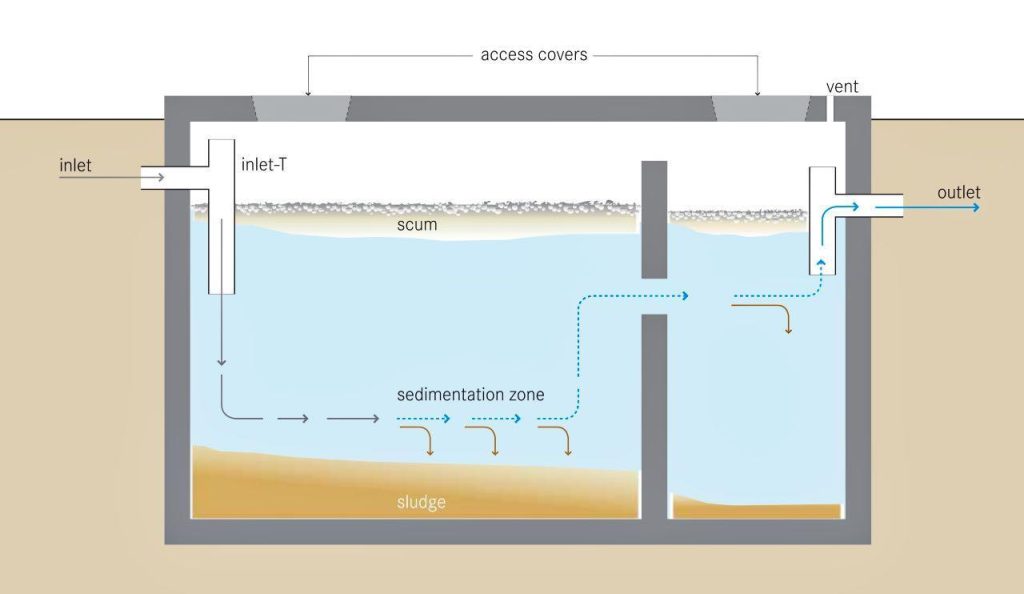Septic System Care Tips

If you’re like most people, you pay attention to your diet. That doesn’t mean, of course, that what you’re taking in is always going to be the best thing for you. As if you didn’t have enough to worry about, you also have to give some thought to what you “feed” your septic system. A few precautions taken now will mean less Sacramento septic service.
How Your Septic System Works
Septic systems are deceptively simple. They consist of the pipes that carry waste from your home, a tank that gathers liquid and solid waste, and billions of microorganisms. The heavier solids settle out, and need to be pumped out every now and then. The lighter matter floats to the top, where it feeds into a leaching bed, whereupon the bacteria in the tank and microorganisms in the surrounding soil break it down. The EPA has a more comprehensive explanation of how a septic system works if you’d like to learn more.
What Could Possibly Go Wrong?
Under normal use, your septic system can handle a higher volume of waste than you’d think. However, overuse — including anything that wastes water, like long showers, too many flushes, or even leaky pipes — can overtax the system. Because the system also relies on beneficial bacteria to work properly, anything that interferes with that biome can cause your septic system to malfunction. That can damage the tank, cause an overflow, and result in some expensive (and very stinky) repairs.
What Not to Flush
There are some things that should never go through your septic system. Some are the same things that shouldn’t be going down the drain or the toilet, the same as you’d do (or wouldn’t do, rather) with a sewer system. Garbage disposals also don’t mix well with septic systems.
For your drains, that means food scraps, grease, oils, and coffee grounds. For the toilet, that includes a long list of things that includes kleenex, paper towels, feminine hygiene products, cotton swabs, and diapers. Don’t forget that it also includes things that say “flushable” right on the label, including many types of facial and household cleaning wipes, and kitty litter.
However, there’s another category of things you might be putting down your drain. They wouldn’t be a problem with a sewer system, but they’re not good for your septic tank. We mentioned earlier that a healthy biome is important to a healthy septic system. Drain cleaner will wipe out those bacteria, and should not be used. Other common household products like detergents, bleach, and toilet bowl cleaner are fine in normal use, but overuse can cause a “shock” to the system. Similarly, hazardous chemicals like gasoline, motor oil, paint, varnish, and pesticides can cause lasting or permanent damage.
Other Steps to Take
We’ve mentioned a biome of bacteria. Like your microbiome (gut bacteria), you can actually supplement the biome in your septic system with store-bought products or even by flushing a quart of spoiled buttermilk down the toilet every few months. This is a good idea if you’ve been using a lot of cleaning products, or if you’ve slipped up and used drain cleaner to remedy a clog. Spreading out your water use helps. You should also keep heavy objects off of the area around the tank or drain field. Structures like sheds should be kept a safe distance away, and vehicles shouldn’t be parked on or near either the tank or the drain field. Also keep a close eye on trees and shrubs so their roots don’t damage the system.
Of course, it’s entirely possible to do everything right and still have things go wrong. If you notice signs of trouble, call Contact Ace Plumbing for quick and expert septic tank service.



